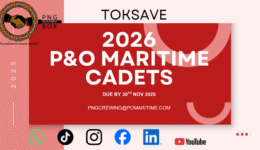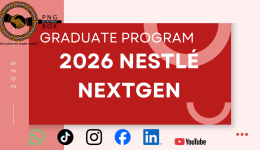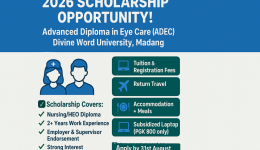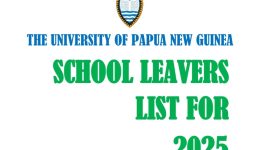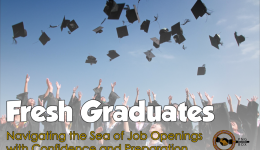Cadet Recruitment – Deck & Engine Cadets at P&O Maritime Logistics 2026 intake
Launch Your Maritime Career with P&O Maritime Logistics PNG through their Cadet Recruitment – Deck & Engine Cadets Are you passionate about the ocean and dream of building a rewarding career at sea? 🌊 P&O Maritime Logistics PNG is calling for Deck & Engine Cadets to join their team of […]

